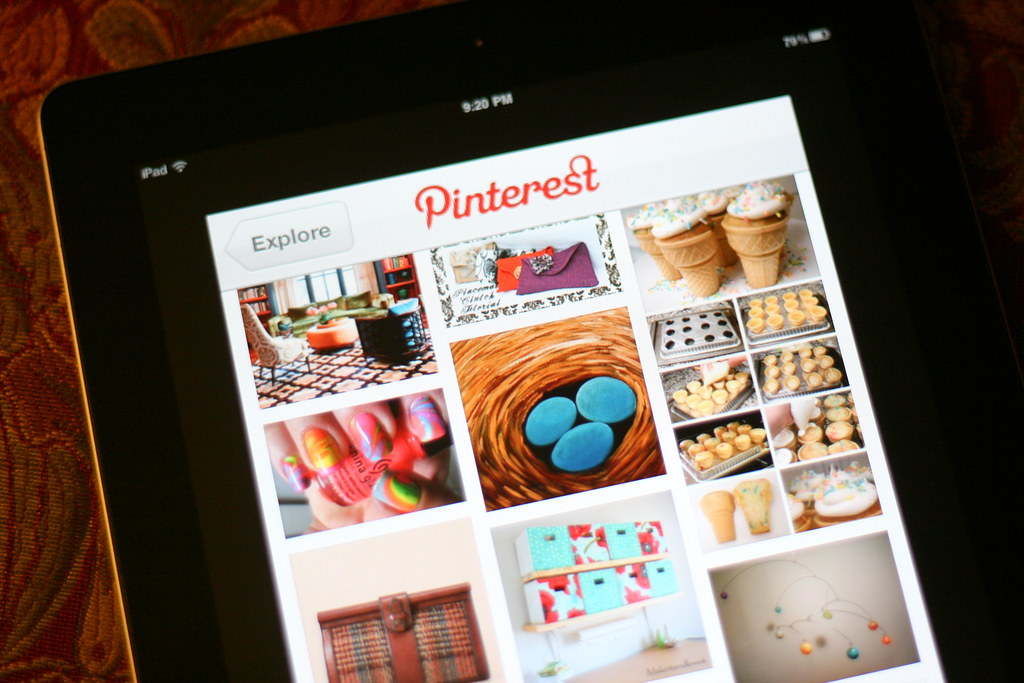 |
| Courtesy of Bunches and Bits {Karina} |
But it does go a little bit further than that. While doing some research, I came across some interesting cases where Pinterest was being used to go beyond the digital world and actually is applied in the physical world.
The first thing I came across what this article titled "Highlights from 'The Pinterest Diet.'" Essentially, this woman wrote a book about how she used Pinterest to lose weight. The author, who wrote this article as well, said, "The diet combines my innovative program of eating clean, satisfying foods with Pinterest's capacity to provide a never-ending supply of recipes, workout plans, and inspiration." A few steps in her plan include creating the pinboards to help achieve this goal and pinning for at least ten minutes a day. She concludes by saying, "By spending time pinning, you're taking care of yourself. You're nourishing your creativity, you're nourishing your mind, and you're nourishing your body. This helps you to refocus on your goals and stay determined to reach them." (I think that's stretching it, but you get the idea.)
I did find a site that it rather interesting called Pinterest Fail. This is where people have tried out recipes or remedies they originally found on Pinterest, but they failed horribly. It's kind of hilarious. But it shows that, like a lot of other content that is curated online, not all of it is successful. It's not guaranteed to work just because you got it off of Pinterest. The DIY maybe isn't the best way to go, either because the user has faulty information or the user can't follow the do-it-yourself steps for some reason.
Lastly, I found this article titled, "Pinterest, Tumblr, and the Trouble with 'Curation,'" which is actually kind of perfect for this blog post. The author explains how she would collect these magazines full of ideas about interior design. She loaned these magazines to a friend, only to have the some of the pages of content she had collected missing. She says it wouldn't have happened if Pinterest was around at that time.
She goes on to explain that she does like her method of using magazines better, "but they're too grounded in space and time, too organized and linear, too collaborative and professional to deliver the synaptic frisson available from the stream-of-consciousness image blog." I really liked what she had to say a little bit later in the article.
Pinterest’s sudden and spectacular rise has been met with some skepticism, and it’s often talked about in that particular dismissive way reserved for things that have the temerity to seem both frivolous and feminine. Not surprisingly, some of this loathing is internalized. Someone on Pinterest once posted a slide that read: “Pinterest: Where women go to plan imaginary weddings, dress children that don’t exist and decorate homes we can’t afford.” But to focus on the “aspirational” aspect is to miss the point. People don’t post stuff because they wish they owned it, but because they think they are it, and they long to be understood, which is different. (emphasis added)
And therein, lies the crucial point about Pinterest and using it to establish part of all of an identity. People curate this content so that they will connect with others or find a community. So what are your thoughts on Pinterest and curation? Are people curating to help create a digital identity?

I see Pinterest as (mostly) fantasy. It's the big girls' game of house, dress-up, and dolls all at once, with funny pics and Ryan Gosling added for good measure. In that sense, Pinterest is definitely an expression of self-image. In some ways, it's probably the best way to see how someone views themselves because they are unbound by their own talents of expression and can use others' work to show their own sense of identity. In this way it may also be a limited way to tell one's individuality, because people rarely post their own content and creations to Pinterest, and when they do the may make it conform to some aesthetic they feel will go viral. Pinterest is an extremely interesting phenomenon and I'm excited to see what you do with it.
ReplyDelete